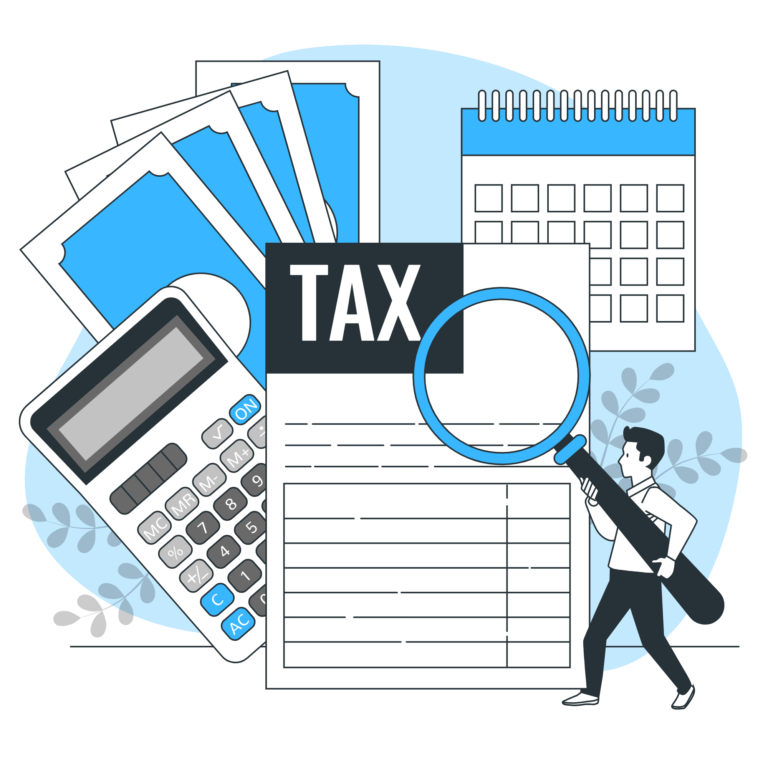The withholding tax applies to cross-border commuters and Swiss residents with a B permit. The Ordinary Withholding Tax already existed under the better known name of "quasi-resident" but it only applied to cross-border commuters. This article deals with the modalities of the withholding tax in Geneva for both residents and cross-border commuters.
Table of contents
subsequent ordinary taxation (TOU) What is it?
The procedure of Ordinary Subsequent Taxation (TOU), allows taxpayers who are taxed at source, to file an "ordinary" tax return the following year in order to claim deductions that are not taken into account in the tax schedule at which they were taxed. But it can also be used to declare other income that cannot be deducted at source.
The TOU is treated like a regular tax return, the difference is that it is done in addition to the withholding of tax at source, hence the name "Ordinary Subsequent Taxation".
Swiss residents:In some cases, the TOU may be mandatory or upon request. Once the TOU application is filed, a regular return will have to be filed every year until the end of the liability (forever).
Non-Residents/Borders:For non-residents, TOU on demand is subject to conditions, in some cases it may also be mandatory.
Important: An TOU may result in a refund of withholding tax or an additional tax liability.
Why apply for an TOU?
It may be worthwhile to apply for an Ordinary Subsequent Taxation (OST), as it allows for the following charges:
- Les rachats de cotisations de prévoyance LPP
- 3rd Pillar A contributions
- Child care expenses
- The payment of alimony
- Training costs
- Donations
In fact, these deductions are not included in the withholding tax scales.
Who can apply for an Taxation Ordinaire Ultérieure (TOU) ?
Swiss Residents:
Any Swiss resident can make an TOU provided that he/she actually resides in Switzerland. No other conditions must be met.
Non-Residents/Border Workers:
A non-resident can apply for an TOU provided that at least 90% of his income is taxed in Switzerland as was the case for granting quasi-resident status. This is the case for most cross-border commuters.
Who is required to do an TOU?
Swiss residents taxed at source who meet any of these conditions are required to file an Ordinary Subsequent Taxation :
- Owner of a property in the canton of Geneva
- Income of +120'000 CHF/year
- You have taxable assets
- Generate other income (property income, housing allowances, wealth income)
- Married to a resident without gainful employment
- You have already been the subject of an TOU
Non-residents may also be required to submit to Ordinary Subsequent Taxation if they meet one of these conditions:
- Owner of a property in the canton of Geneva
- You are self-employed in Geneva
The requirements for Swiss residents do not apply to non-residents.
How do I apply for an TOU ?
Two ways to request an Ordinary Subsequent Taxation (OST):
- La taxation ordinaire ultérieure (TOU) peut être demandée en ligne via votre compte e-démarche
- En utilisant le formulaire papier « DRIS/TOU »
Response time to a request for Taxation Ordinaire Ultérieure (TOU)
Once the application is submitted, it takes 2-4 weeks.
Do I have to apply for an TOU every year?
Swiss Residents:
Once the Ordinary Subsequent Taxation has been requested, there will be no need to apply. You will receive your tax return code directly at the beginning of each year like any taxpayer.
Non-Residents/Borders:
An application must be filed each year as long as the requirements are met.
What is more advantageous: staying taxed at source or doing a TOU?
What you need to know is that the withholding tax already takes into account some deductions:
- AVS/AI/APG contribution: 5.3% of gross income
- Unemployment contribution: 1.1% of gross income
- BVG contribution: 5% of gross income and max. CHF 47,322
- AMAT contribution: 0.043% of gross income
- AANP contribution: 1% of gross income
- Professional expenses: 3% of gross income after deduction of points 1 to 5. But at least CHF 609 and max. CHF 1'725
- Health and accident insurance premiums :
5'738 CHF single person
11'476 married couple
1'499 CHF per child - Deduction for child : 13'000 CHF
- Double activity of the spouses : 1'000 CHF
If you have other actual expenses to claim than those already included in the schedule, then it is possible that doing an Ordinary Subsequent Taxation (UST) is more advantageous for you, as it allows you to claim the following deductions:
- Les rachats de cotisations de prévoyance LPP
- 3rd Pillar A contributions
- Child care expenses
- The payment of alimony
- Training costs
- Donations
It is possible to know whether the TOU will work to your advantage or not, an analysis of your situation and a tax return simulation is recommended, especially for residents for whom the Taxation Ordinaire Ultérieure (TOU) is a definitive decision.
Tax advice
The tax return can be made by yourself. However, doing it in the company of a tax expert helps you to declare your income correctly and, above all, to assert your rights with regard to deductions.
Tax Services takes the burden off your shoulders and helps you to see things more clearly. Please contact us if you have any questions or if you would like to do a tax simulation.
FAQ - subsequent ordinary taxation
The TOU allows other deductions and actual expenses not covered by the withholding tax rates to be taken into account, such as pension contribution buy-backs (LPP), 3rd pillar A contributions, childcare costs, maintenance payments and training costs.
The TOU may be claimed by taxpayers subject to withholding tax, whether resident in Switzerland or abroad, under certain specific conditions relating to their income, deductions and personal situation.
If a Swiss resident applies for an TOU, he or she is obliged to keep this system forever.
For cross-border commuters, the application must be renewed each year.
The TOU application must be submitted once for residents and does not need to be renewed each year.
However, the first application must be returned no later than 31 March of the year following the levy.
For cross-border commuters, the application must be made each year before 31 March.
Quasi-resident status allows a taxpayer subject to withholding tax who lives abroad (non-resident) to apply for a TOU.
To obtain this status, at least 90% of the taxpayer's (or married couple's) worldwide gross income must be taxable in Switzerland.
The TOU is compulsory for residents in situations such as :
- Gross annual income in excess of CHF 120,000
- Annual income not taxed at source in excess of CHF 3,000
- Possession of taxable assets
- Property ownership
- Self-employment in Geneva
- and other specified conditions
You can estimate your total tax liability by completing an online tax return or using GeTax software for individuals.





